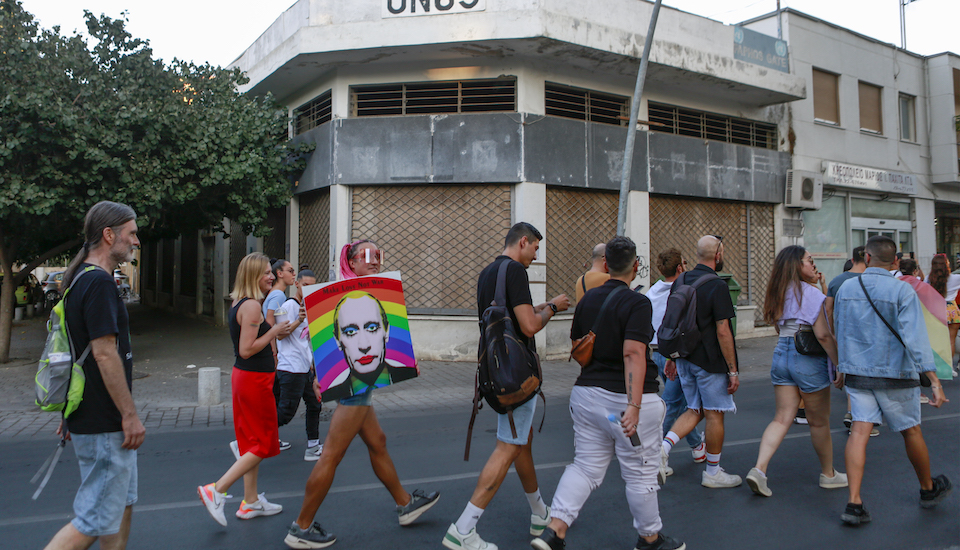Given the scale of the challenges we face, it would be easy to seek sanctuary in blind optimism or despairing pessimism. It is not clear, at this stage, that we can achieve Net Zero carbon emissions by 2050 and be over half-way there by 2030. Nor is it obvious that new and disruptive technologies will be introduced in a way that doesn’t exacerbate economic polarisation further. And can we manage an aging society with high quality and affordable public health and care services, not least with the health impacts of climate change and economic distress weighing heavily in addition?
All these challenges inter-relate and could, quite possibly, become overwhelming. If we don’t address living standards then momentum towards diminishing ecological detriment, let alone restoration of the natural realm, seems likely to slow. Without responding to climate change, living standards will be harmed as supply chains and collective resources are disrupted. Climate extremes will become a sleeping health emergency. The observation that we are dealing with a VUCA world – volatile, uncertain, complex, ambiguous – is certainly true, but that doesn’t take us very far if we are to adapt sufficiently.
Responding to such a set of interlocking challenges requires more than a suite of policy solutions or the right mobilisation and allocation of resources. Without a shift in the way we think and act as a society, our predominant ethics, our ways of developing institutions, and the ways in which we approach problems sometimes at a global scale, we won’t get very far. All of that requires new ways of governing just as was the case in previous eras of social, ecological, technological and economic systemic change. As explored by James Plunkett, in End State, fundamentally new societal hardware requires a software upgrade and that is a new governing model- or models to be more precise.
Given that governing models have been stress-tested by a pandemic, it would be odd to ignore some of the lessons from that experience. In general, the governing systems that combined high trust, with strong administrative co-ordination, clarity of communication, in societies that are solidaristic and able to adopt innovative technologies, including vaccines, fared well. No one country is an exemplar, but countries that combined many of these factors, as explored in RSA research by Riley Thorold, included Taiwan, South Korea, and Finland. Those in the developed world (i.e. those with relatively advanced healthcare systems and capacity) that struggled included the UK, Spain, Italy, Belgium and the US. This is a warning shot, a deadly one, for those governing systems.
Three modes of a future state could be possibilities for the necessary upgrade: Northcote-Trevelyan 3.0, User-centred AI, and Mutual Aid state. The first model is about building on what the traditional state has done well in the modern era and termed after the fundamental reform of the civil service towards one based on expertise rather than patronage in 1854. In this model, the modern state develops new models of resourcing and distribution – just as we have seen with the proposed funding of health and social care announced by the Government recently. In this model there would be much stronger co-ordination between the central state, global and local institutions as well as with critical societal actors such as in business, civil society, and trade unions. This model might rely on developing greater mechanisms of ‘collective intelligence’.
The user-centred AI state relies on some of the most innovative developments in public administration in the past decade: human centred design (which also has a role in the mutual aid mode), user-centred digital platforms, big data gathering and analysis, and algorithmic systems of public management. In the case of health and care given that it’s topical, this would support smart and resilient distribution systems of medicines and vaccines, gather and process data on system impacts in terms of health and care systems and distribute resources accordingly, and develop agile systems of case management to improve service pathways and co-ordination. It is in this mode of the state that super-forecasting combining expert insights with probabilistic scenarios would have a place – think of the state as a public Amazon. The post-bureaucratic age reforms from 2010 onwards pointed towards this model.
A mutual aid state is focused on human relations. It sees the direct interaction between people and each other within communities, with each other through devolved democratic innovations such as participatory budgeting and community assemblies, and in relation to personalised public services such as through personal budgets and relational service models as a key means of managing a future with quality of life at its core. Barking and Dagenham Borough Chief Executive, Chris Naylor, recently outlined how his local authority has responded to a ‘living well’ agenda in many of these ways. Community power approaches sit within this mode of governing.
Which is the right mode to choose? You may interpret this as ducking the question, but the reality is that the next state, and the people who lead and deliver it on a day-to-day basis, will need to understand and be able to draw on all of the modes to meet different elements of complex challenges. Mobilising resources to support consistent delivery and innovation development will require Northcote-Trevelyan 3.0. Managing knowledge flows, developing an excellent citizen service experience, and universal services and infrastructure will require the user-centred AI mode. The ability to meet particular, complex and overlapping needs at a community level require the Mutual Aid mode.
In a recent session for civil service senior managers where I outlined these modes and considered their implications for leadership, I was asked whether bigger ends such as Net Zero would be de-prioritised as the politics of living standards took over short-term political attention. The question got to the heart of the matter. Unless the next state can support living standards and quality life alongside transitioning to Net Zero then momentum around the latter will be quickly lost. Without all three governing modes the choices we will have to make will become intolerable. That’s when we simply go back to blind optimism and despairing pessimism.
Related articles
-
Young at heart
Journal
Jonathan Prosser
Becoming a nation with children at its centre in 10 courageous steps.
-
Open RSA knowledge standards
Blog
Alessandra Tombazzi Tom Kenyon
After investigating ‘knowledge commons’, we're introducing our open RSA standards and what they mean for our practice, products and processes.
-
Worlds apart
Comment
Frank Gaffikin
We are at an inflexion point as a species with an increasing need for collaborative responses to the global crises we face.




Join the discussion
Comments
Please login to post a comment or reply
Don't have an account? Click here to register.
I would have rejected this propsition until recently after driving an AI enhanced car. My perception of AI has changed 180 degrees, the car actually drives better than I do. My friend has just bought a self tacking yacht, it sails better than he does.The point is that if we augment ourselves with this stuff we can firstly cope better in a complex world and probably thrive by mitigating complexity risk as the AI is doing some of the work, maybe limiting degrees of freedom yes but opening up other areas of access especially for older people. How this aggregates up is a function of access, not everyone wants a yacht but presumably the same goes for response to a fuel crisis, ie AI select by infirmity, deliver help where required through route planning etc.
(The VUCA wikipedia article needs some work). I wonder aloud on seeing the world as volatile, uncertain, complex, ambiguous that we react to it, when we ourselves are in that world, and can help shape it.